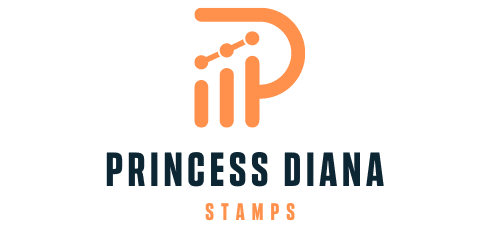What’s the Role of Omega-3 Fatty Acids in Muscle Recovery for Weightlifters?

When it comes to optimizing muscle gain and recovery, weightlifters have always relied on a comprehensive approach that includes a well-balanced diet, proper training routines, and strategic supplementation. Among the nutrients known to boost muscle health and performance, omega-3 fatty acids have been a topic of interest in the health and fitness world. Obtained majorly from fatty fish oil, these essential fatty acids, specifically EPA (Eicosapentaenoic Acid) and DHA (Docosahexaenoic Acid), have been linked to a plethora of health benefits. But what about their role in muscle recovery and performance enhancement for athletes, specifically weightlifters? This article explains that in detail.
Omega-3 Fatty Acids – Uncovering the Basics
Omega-3 fatty acids are a group of polyunsaturated fatty acids, essential for several bodily functions. The body cannot produce these acids on its own, hence the need to obtain them through diet or supplementation.
Lire également : What Are the Best Techniques to Increase Flexibility in Martial Artists?
The three main types of omega-3 fatty acids are Alpha-linolenic acid (ALA), Eicosapentaenoic Acid (EPA), and Docosahexaenoic Acid (DHA). ALA is found in plant sources such as flaxseeds, walnuts, and chia seeds. On the other hand, EPA and DHA are found in animal sources, particularly fatty fish like salmon, mackerel, and tuna.
While all are important for overall health, the focus in this context is on EPA and DHA, primarily obtained from fish oil. These acids have been connected to various health benefits, including improved heart health, cognitive function, and inflammation regulation.
En parallèle : How to Incorporate Mental Skills Training in Youth Soccer Academies?
Role of Omega-3 Fatty Acids in Muscle Health
Omega-3 fatty acids play a significant role in muscle health, especially in the context of weightlifting and other high-intensity exercises.
Firstly, these essential fatty acids help increase muscle protein synthesis (the process through which the body builds new protein that acts as the building block of muscle tissues). A study published in the American Journal of Clinical Nutrition found that omega-3 supplementation significantly stimulates muscle protein synthesis and increases muscle cell size.
Secondly, omega-3 fatty acids are instrumental in reducing inflammation, a common occurrence after intense exercise. They do this through their epa and dha components, which have been shown to limit the production of certain substances released during the body’s inflammatory response.
Omega-3 Fatty Acids and Muscle Recovery
Muscle recovery is essential for weightlifters, as it allows for the repairing and strengthening of muscle tissues after intense workouts. Here, omega-3 fatty acids play a two-fold role.
On one hand, they help reduce muscle soreness. A study conducted by the Journal of the International Society of Sports Nutrition found that omega-3 supplementation helps reduce muscle soreness, leading to better post-workout recovery.
On the other hand, these fatty acids help promote the rebuilding of damaged muscle fibers. EPA and DHA play a crucial role in the body’s protein metabolism, a process necessary for the repair of muscle tissues.
Omega-3 Supplementation for Weightlifters
Given the benefits of omega-3 fatty acids for muscle recovery, it is no surprise that they have become a popular supplement among athletes and weightlifters. However, the question remains – how much should you take, and when?
The amount of omega-3 you need can vary based on factors such as your age, sex, and overall health. However, the American Heart Association suggests an intake of at least two servings of fatty fish per week. For those who don’t consume fish, omega-3 supplements can be a viable option.
It’s important to remember that while omega-3 supplementation can support muscle recovery, it should not replace a balanced diet and regular exercise. Moreover, before starting any new supplement regimen, it’s always best to consult with a healthcare professional.
Bear in mind that Google is a great tool for finding quality omega-3 supplements; however, not all supplements are created equal. Look for those that contain a high concentration of EPA and DHA and are third-party tested for purity and quality.
In the realm of weightlifting, muscle recovery is just as critical as the weightlifting exercise itself. By incorporating omega-3 fatty acids into their diet or supplement regimen, weightlifters can support their muscle health, recovery, and overall performance — proving that the strength of a weightlifter is not just about the weights lifted but also about the nutrients consumed.
Health Benefits of Omega-3 Fatty Acids Beyond Muscle Recovery
Beyond their role in muscle recovery and health, omega-3 fatty acids have been linked to a host of other health benefits. These health benefits are broad and span across different domains of our overall well-being.
EPA and DHA, the primary omega-3 fatty acids found in fish oil, have been shown to improve heart health. Multiple studies have linked the intake of these essential fatty acids to a decrease in risk for heart disease. They have been shown to lower blood pressure, reduce the likelihood of abnormal heart rhythm, and decrease triglyceride levels.
These fatty acids have also been linked to improved mental health. Several research articles on PubMed and Crossref Google Scholar indicate that EPA and DHA may help in the management of mental disorders, such as depression and anxiety.
Omega-3 fatty acids are also beneficial for cognitive function. As per some studies, these fatty acids are known to improve memory and learning, especially in older adults. They may also play a role in slowing the progression of Alzheimer’s disease.
Furthermore, the anti-inflammatory properties of omega-3 fatty acids help in managing chronic inflammation, thereby benefiting those with conditions like rheumatoid arthritis and Crohn’s disease.
Conclusion: The Power of Omega-3 Fatty Acids for Weightlifters
The role of omega-3 fatty acids in muscle recovery and overall health cannot be overstressed. These essential fatty acids have been shown to support muscle protein synthesis, reduce muscle soreness, promote the repair of damaged muscle fibers and provide numerous other health benefits.
Omega-3 supplementation has thus become an essential part of nutrition for weightlifters and other athletes. However, it’s crucial to remember that these supplements are just that – supplements. They should not replace a well-rounded diet and regular exercise, but rather complement them.
Before starting an omega-3 supplementation regime, it’s always best to seek professional medical advice. When choosing a supplement, it’s crucial to select one that is high quality and reputable. Looking for third-party tested supplements with high concentrations of EPA and DHA can be a good start.
The power of omega-3 fatty acids goes beyond just muscle recovery. From enhancing heart health to supporting mental wellness, these vital nutrients are like the silent workhorses of our bodies. For weightlifters, they provide a sizeable advantage, not just in terms of enhancing their muscle mass and reducing muscle soreness, but also in promoting overall health and well-being.
In conclusion, the strength of a weightlifter does not solely lie in the weights lifted or the muscle mass built; it also resides in the nutrients consumed. Adequate intake of omega-3 fatty acids, either through a diet rich in fatty fish or through high-quality fish oil supplements, can significantly contribute to a weightlifter’s success. So, remember, the power in weightlifting may very well lie in the humble omega-3 fatty acid.
